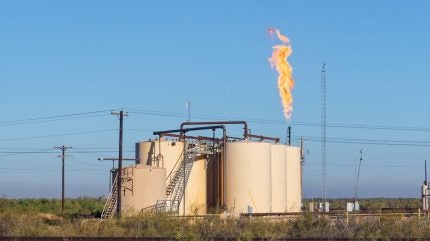
The Methane Report 2024 by Italian oil and gas company Eni has highlighted the significance of mitigating methane emissions, with the research identifying the gas as the second most impactful greenhouse gas (GHG) contributing to climate change within the oil and gas sector.
At the IEA-COP29 High-Level Event on Turning Methane Pledges Into Action in New York, Eni released its inaugural report, demonstrating its efforts to increase transparency and start reducing global methane emissions.
Eni believes that natural gas plays a role in the energy transition towards 2050 due to its cost-effectiveness, dependability, adaptability and lower carbon compared with other fossil fuels.
However, global efforts are necessary to eradicate methane leaks in the natural gas value chain, a cause that Eni has supported for more than a decade.
Claudio Descalzi, CEO of Eni, said: “Our strong focus on methane emissions abatement, coupled with the application of new technologies, has positioned Eni as an industry leader and significantly reduced our methane emissions over the past decade.”
Eni follows the evolving international guidelines set by the Oil & Gas Methane Partnership 2.0. The company uses advanced technologies, many of which utilise methane’s optical characteristics (light absorption in the infrared spectrum) to measure its concentration in the air and calculate the emitted flow rate using local weather data.
Additionally, Eni collaborates with external partners to develop internal solutions that bridge the gap between its needs and the technologies available in the market.
Eni reports that its direct methane emissions have decreased by more than 50% in the past six years, from 2018 to 2023. Its upstream methane intensity of 0.06% positions the company among the industry leaders.
Additionally, it said that methane emissions in Eni’s upstream business were 20% lower from 2022 to 2023.
According to Eni, agreements are in place with several large oil companies to share and apply Eni’s methane reduction approach and best practices. The goal is to achieve near-zero methane emissions by 2030.
Descalzi added: “We are now pleased to apply our own learnings in partnership with others in the sector and supply chain to help deliver meaningful methane reductions across the oil and gas value chain.”



